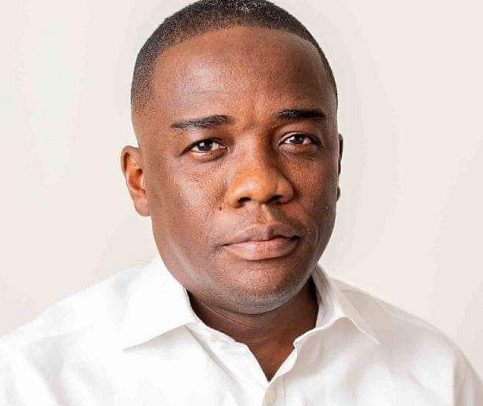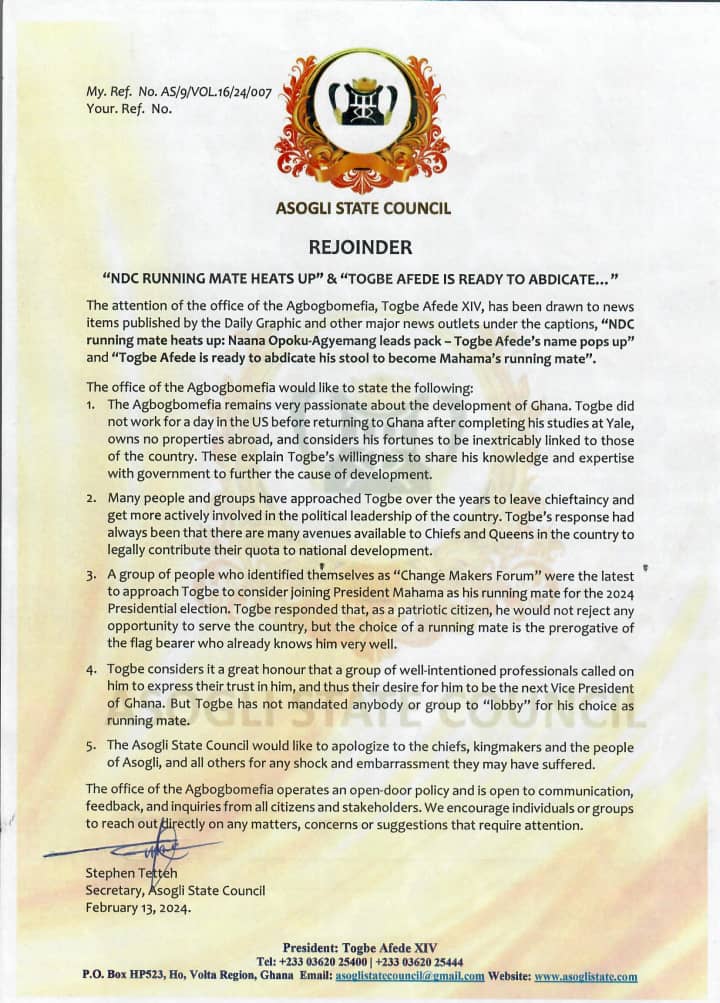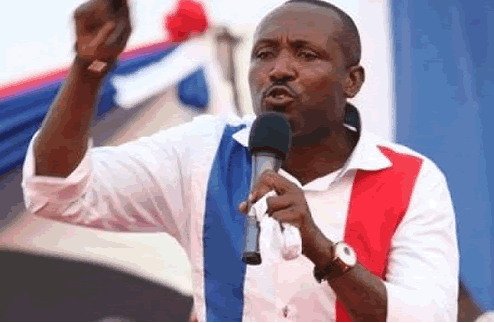
Togbe Afede XIV, the Agbogbomefia of the Asogli State and a former board member of the Bank of Ghana (BOG) has stated that staff of the central bank on average owed the employer a total of GHC566,046 in loans as of the end of 2022.
Comparing Ghana’s central bank to the UK’s central bank, the Bank of England (BOE), he describes it as “a case of the poor living like the king.”
In a statement available to 3News, the former president of the National House of Chiefs criticised the central bank for engaging in excessive spending vis-à-vis the bank’s income.
“Unlike BOE staff who do not receive loans from their employer, BOG staff owe the bank GH?566,046 (£51,459) on average or per employee as at the end of 2022. It is difficult to imagine how the technically bankrupt institution is funding its exorbitant expenditures.
“It is difficult to believe how some BOG’s operating incomes and expenses compare with those of Bank of England (BOE). For example, BOG spent GH?1.62 billion (£147.27 million at 2022 average cedi-pound exchange rate) on its 2,203 employees, that is, £66,851 per employee, about 38x Ghana’s GDP per capita.
“BOE on the other hand, with an average labour force of 4,675 per their 2021-22 financial report, spent £448 million, that is, £95,829 per employee, about 2.6x UK’s GDP per capita,” excerpts of the statement read.
As of 2022, the BOG has a staff strength of 2,203 with an average monthly cost of GHC61,304.
According to the Agbogbomefia, the BOG’s extravagance is typical of “poorly supervised cash-rich state-owned enterprises,” accusing these enterprises of increasing remuneration and expenditures at will.
READ ALSO:
“BOG’s staff strength went up 43% between 2010 and 2022. Average staff cost went
up 1,100% and fees per non-executive director went up 3,400% over the same
period.
“So, budget considerations appear to be a factor in BOG continuously keeping interest rates high, even when they are targeting or expecting single-digit inflation. The last reduction in the policy rate was a laughable 1%, from 30% to 29%.”
He noted that the central bank needed high-interest income to “fund excessive spending”.
Cedi depreciation
Furthermore, as regards Cedi’s depreciation against major trading currencies, Togbe Afede XIV chastised BOG for its 6.2 percent year-to-date depreciation rate reported by the central bank.
He maintained that the extremely high interest rates pose significant threats to the Cedi’s appreciation.
“It would be disingenuous to attempt to draw any comfort from a comparison with what we experienced during the turbulent first quarter of last year, let alone suggest consequently that we are doing well.
“The bad news is that, the recorded cedi depreciation roughly tracked the yield on Government of Ghana treasury bills, confirming that parity laws have been at work, just as we saw in 2023, when the cedi depreciated 27.8% against the US dollar.
“So, at current ridiculously high interest rates, our currency will continue to depreciate, to
restore parity. It would be naïve to expect otherwise,” he noted.
Meanwhile, Togbe Afede XIV emphasised that the BOG requires drastic restructuring to make its operations more efficient, align its objectives with those of the state, and ensure a sincere pursuit of stability.
He said, “Maintaining a high-interest rate environment that ensures that our banks, including BOG, make abnormal profits at the expense of the real sectors is not good central banking practice.”
Read full statement from Torgbe Afede here.
The post Average BOG staff owes employer GHC566k as of 2022 – Togbe Afede XIV reveals first appeared on 3News.
Read Full Story











Facebook
Twitter
Pinterest
Instagram
Google+
YouTube
LinkedIn
RSS